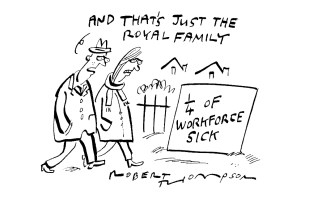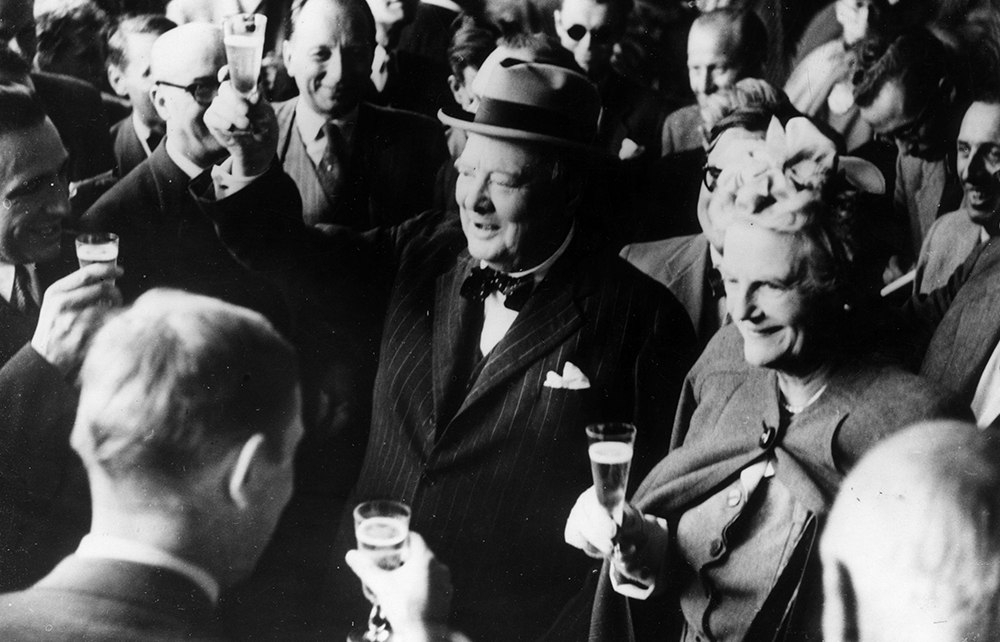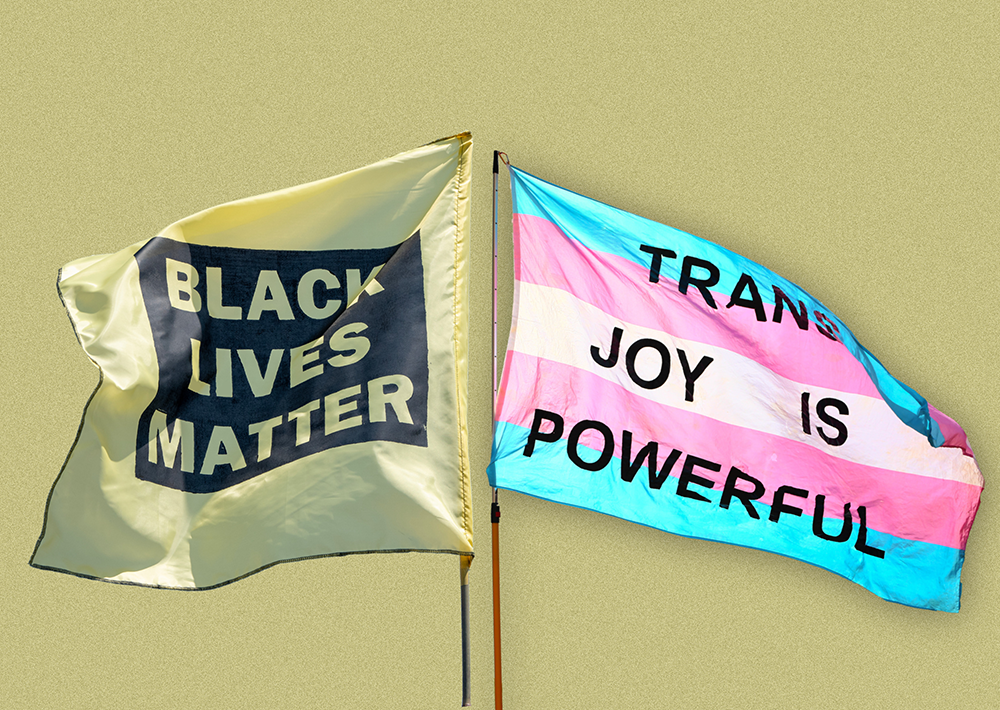Churchill. No disrespect to Andrew Roberts’s more recent work, but I set out to look up a point about drink in Roy Jenkins’s biography and ended up rereading it. I think that it is Roy’s best book and extremely well written. There are also passages where he slips in points from his own experience of high office: never excessive, always illuminating.
Although Churchill was rarely drunk, he was equally rarely sober
I did not need to be reminded what an extraordinary figure Churchill was: the drama was so vivid. After the ‘fight on the beaches’ oration, Josiah Wedgwood, a Labour MP, said that it was the speech of a thousand years. Britain was menaced as never before; France was about to surrender. Despite Churchill’s entreaties, the US seemed set on remaining thousands of miles of cold ocean away from Europe’s agonies. In early June 1940, the UK’s position was desperate. As Churchill spoke, more troops than we dared hope for were making it back from Dunkirk but as the new PM was to remind the nation, evacuations do not win wars. Moreover, the evacuees had to leave much of their kit behind them.
The British Army was short of everything but not of morale. There, Churchill’s role was crucial. He mobilised the English language and sent it into action. It is no exaggeration to say that Churchill alone saved this country. No one else could have inspired the British people. Any other potential prime minister would have ended up making a negotiated peace with Hitler on humiliating terms. Without him, our history would have been very different, and very much worse.

It might seem absurd to believe in divine providence, although great men have done so. John O’Sullivan wrote a fascinating book, The President, the Pope, and the Prime Minister, dealing with John Paul II, Ronald Reagan and Margaret Thatcher, all three of whom survived assassination attempts. Both the Pope and the President believed that, as it were, God had jogged the assassin’s elbow. The two of them still had work to do and could not be spared. John asked Mrs T if she had similar thoughts. ‘No’ was her firm, unsurprising and characteristically down-to-earth response. That said, a lot of Englishmen think that if there is a God, He resembles an English country gentleman. So if England was in mortal peril, surely the Almighty might do something to protect His chosen nation?
Churchill could certainly not have been spared. Yet one of his many magnificent qualities was an entire insouciance about his own personal safety. The cavalry charge at Omdurman, the bullet which missed his cranium by inches at Spion Kop, his attempts to learn to fly. It took two crashes – ‘prangs’ as he put it – before he was reluctantly persuaded to desist.
Illnesses, injuries from a motor-car: by the late 1930s he began to believe that his own physical powers were failing. On India, he had taken a foolish line and was equally wrong about the Abdication. He gave some below-par performances in the Commons and there was also the drinking. Although Churchill was rarely drunk, he was equally rarely sober. A lot of sensible Tories had concluded that his day was over. Then came Hitler.
Cometh the hour, cometh the man: that was never truer. Forget failing powers: he was abetted by a constitution as strong as a team of oxen, and by alcohol. Splendid old brandy, champagne, fine claret, plenty of Scotch: Churchill drank slowly and steadily from late morning to very late at night, and no one has made a case that his judgment was significantly impaired. So re-read Jenkins and Roberts, drinking something good as you do so, raising a toast to his shade and perhaps give a cautious thank you for divine providence.







Comments